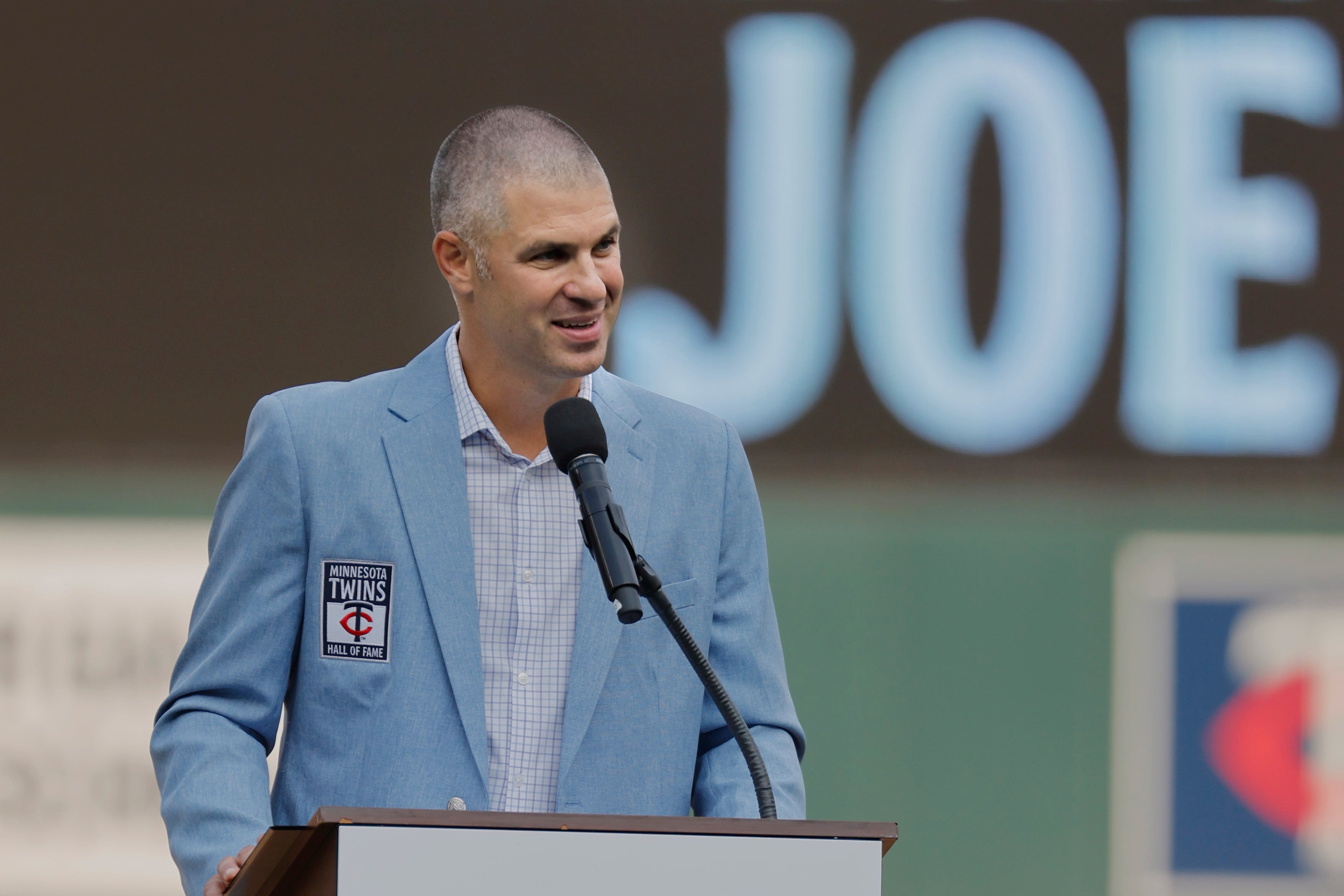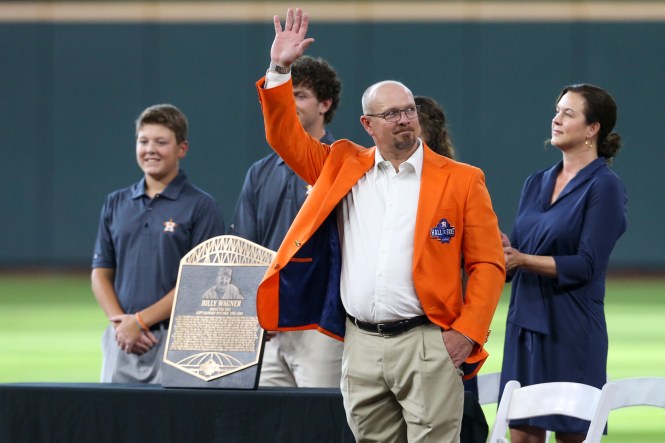
Another Baseball Hall of Fame vote is official, and this one was a bit surprising, simply because it was the first time since 2019 that the Baseball Writers Association of America has selected as many as three inductees in one class. We, as a group, are expanding our wings.
All three inductees – first-timers Adrián Beltré and Joe Mauer and sixth-timer Todd Helton – deserve the honor. They were among the best players of their generation and were consistently good throughout lengthy careers.
Beltré was a slam dunk heading into the vote, and he was named on 95.1 percent of BBWAA ballots in his first attempt; 75 percent inclusion is necessary for induction. Beltré’s combination of all-around offense, elite defense and passion for the game was evident throughout his 21 seasons in the big leagues. He was named on 366 of 385 ballots cast. That’s pretty impressive – and appropriate.
Here are some of my other thoughts on this year’s Hall of Fame voting results:
Related: Dan Connolly’s Baseball Hall of Fame ballot
Joe Mauer’s first-ballot induction surprises me

It’s not that I didn’t think Mauer was worthy. I voted for him. It’s just that I felt his candidacy had a few warts, more than Helton (79.7 percent) or Billy Wagner, who just missed induction (73.8 percent).
Mauer received 293 votes (76.1 percent), four more than the requisite 289 needed for election. He’s done it at age 40, one of the youngest in history, and now the youngest current baseball Hall of Famer. He’s also one of three catchers to be selected on the first ballot, joining Johnny Bench and Ivan Rodriguez.
Mauer’s candidacy was aided by being a catcher, and a tremendous hitting one. He’s the only backstop in history to win three batting titles. The biggest negative with Mauer, however, is that due to injuries, including concussions, his time behind the plate was cut short.
He actually started more games at first base and designated hitter (a combined 888) than at catcher (884). Since his offense diminished as he got older, I thought that might give voters some pause, at least for one year. But it didn’t. And it didn’t stop me, ultimately, either.
Todd Helton’s Coors Field home no longer an issue for Baseball Hall of Fame votes
Helton’s numbers in 17 seasons as Colorado’s starting first baseman screamed Hall of Fame, including a slash line of .316/.414/.539. He also was an excellent defender and a durable one for most of his career. The criticism is that he piled up his numbers batting half the time in hitter-haven Coors Field. That’s not his fault. It’s still a big-league stadium.
Helton’s home park and the fact he never finished above fifth in MVP voting are partially why it took him six ballots for induction. But consistency and longevity should mean something. This proves they do. And that a home altitude should not be a detriment to getting into Cooperstown.
Billy Wagner lives on the edge

Perhaps it’s appropriate for an outstanding closer to go to the wire for a Hall entrance. Wagner was one of the game’s best closers for the better part of 16 years in the big leagues. His Baseball Hall of Fame election percentage has grown from 10.5 percent in his first year of eligibility, 2016, to 73.8 this year on his ninth ballot.
Wagner needed only five more votes to get in, and the assumption is those will come next year. Once a candidate gets that close, it’s tough for voters to say no, because they start to wonder what they are missing. And no one wants to be a guy that prevents a worthy player from reaching baseball immortality.
I’ve been a Wagner supporter for years. I’ll continue that trend next year. And I imagine five more voters will, too. Let’s hope because Wagner falls off the ballot in 2025.
Sadly, Gary Sheffield doesn’t get close to Baseball Hall of Fame
The good news for Gary Sheffield is that his vote tally continued to surge, jumping almost nine percent more than last year. The bad news is he received 63.9 percent – or 43 votes short – in his final year of eligibility. If he had five more years, Sheffield probably would be elected. But he doesn’t. So, his candidacy will be sent to the BBWAA’s Historical Review Committee, and he could appear on the Baseball Era Players Committee for the 2026 class.
Sheffield wasn’t a candidate for everyone: He had PED connections and was a poor defender but was one of the most dangerous hitters of his generation. This was the third year I had voted for him, and I think he will be in one day. I think we, as a voting group, dropped the ball on this one.
Alex Rodriguez and the best hitters go backwards

The best two hitters on this year’s ballot, Álex Rodriguez and Manny Ramirez, didn’t come close to induction at 34.8 and 32.5 percent, respectively. What’s worse for their cases is both dropped a hair from 2023, when Rodriguez was named on 35.7 percent of ballots and Manny Ramirez on 32.5 percent.
I don’t think there is any question about their talent, but both were connected to PEDS on multiple occasions, including after penalties were set – calling out the validity of their entire careers. It seems that many voters are taking the same stance as I did: One PED brush and the candidacy is highly scrutinized; two or more and it’s a hard ‘No.’
Related: Baseball Hall of Fame’s ongoing exclusion of ‘Steroid Era’ players makes it less than elite
Torii Hunter and David Wright stay alive
My 10th selection this year was outfielder Torii Hunter because I felt the outstanding center fielder deserves more time on the ballot to be considered. It was a strategic play more than an absolute confirmation of Hunter as a Hall of Famer. It worked. Hunter received 28 votes or 7.3 percent of the vote. That’s a slight improvement over his 6.9 percent last year. It’s again above the 5.0 percent threshold needed for him to remain on the ballot for a fifth year.
Meanwhile, first-year candidate David Wright picked up 24 votes or 6.2 percent of ballots. Wright was probably No. 13 on my candidate’s list, and we can only vote for 10. I will look at him even more closely next year, and I’m glad 24 voters made that happen.
Ichiro leads Baseball Hall of Fame Class of 2025
As impressive as Beltré’s vote tally was as a first timer this year, the ageless Ichiro Suzuki should top it as he heads the 2025 class. I think he has a chance to become the second unanimous inductee behind Mariano Rivera, although we will see. It’s hard to get a bunch of sportswriters to agree on anything.
Other newcomers that will have a chance next year include CC Sabathia, Félix Hernández, Dustin Pedroia and Ian Kinsler. My early prediction is that Suzuki, Wagner, Sabathia and maybe Andruw Jones will get the call.